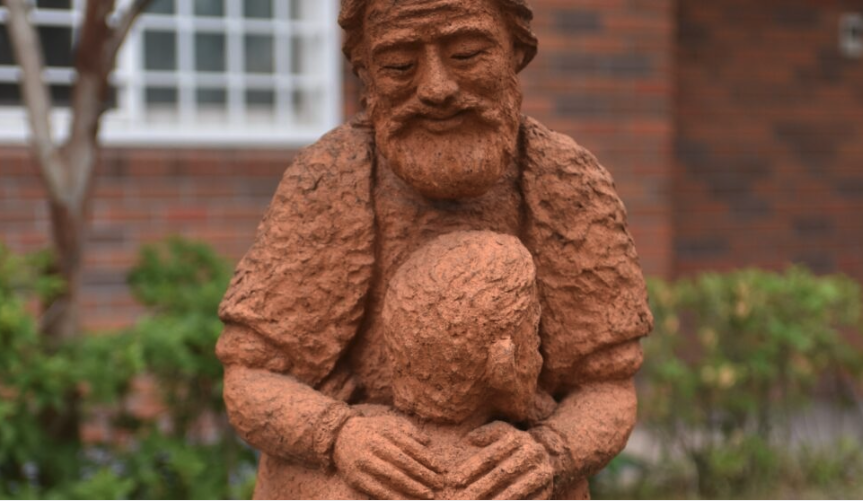
传统的儒家关系观继续为中华文化中的两个人如何相处,包括当冲突发生时该如何处,设定了基本的期望,即不言而喻的文化准则。李强向我解释到:
中国人很少以平等的方式相互交往。在中国传统的人际关系中,存在着一种上下级次序:父在子之上,君在臣之上,夫在妻之上,兄长在弟弟之上。
The older (or superior) is always right and the younger (or subordinate) needs to obey or behave in a certain way toward the older (or higher ranked). If you are above me, I am expected to respect you, and you are expected to look after me.
这种社会排序影响了中国人在关系中对待和解的态度,无论是有意识还是无意识的。按照这种社会规则,下级应该道歉,而上级则不需要。2 下级认为他们别无选择,往往选择根据这些社会规则进行表面上的和解。 “Forget about it! I’ll give you face; you are older than me; you are the boss.” 但是心里没忘,于是冲突的问题还存在着。
黄晶晶在描述自己的成长经历时,阐述了与上下级道歉有关的期望:
In China, a lot of parents rarely apologize to their kids. When I was young, my dad frequently said, “Your elder is always right.” Parents are always right. He was also quite strict, never giving us the opportunity to explain. So from the time I was young, I never learned about apologizing.
如果长辈永远是对的话,那么从逻辑上来说,长辈永远不需要道歉。但是客观说来,一个人不可能永远是正确的。因此紧张局面就出现了。
李强曾因儒家思想的关系排序和相关期望而陷入困境。在他和查经小组中的其他人之间爆发冲突后,他知道上帝期望他能够道歉。然而,道歉与文化规范相反,这可能会产生负面影响。他是这样描述自己的困境的:
按照中国人的思维方式来看,我作为查经小组的组长,在某种程度上是一个 "长辈",而事实上,根据年龄,我只略微年长于其他人。根据这种文化对面子的看法,年龄差异使我被认为更有智慧、更聪明。我也理应受到更多的尊重。
So if I behave like someone younger than me, that is, if I apologize, then the previous relationship of “I am higher than you, you are lower than me” changes. In this case, they are now above me; they have a certain authority to criticize me now.
李强应该按照在高位者的一般期望而行,选择不道歉吗?还是应该顺从圣经,承认自己的罪过去道歉,并面对任何时候可能出现的任何负面后果呢?如果你是他,你会怎么做?
李强选择放下自己的面子,并道歉。
My identity before God is the most important; it is of chief importance. My relationship with others is secondary. If he now views himself as better than me because I chose to set aside my face and apologize after doing something wrong, I won’t pay attention to this. No matter how he feels about me, how God views me is most important.
当李强向比他小的查经小组成员道歉时,他将尊荣和爱上帝及弟兄放在首位,而不是维护自己的面子。对于李强来说,上帝如何看待他比别人会否因为他的道歉而看不起他更重要。如果有人好奇结果的话,李强的组员接受了他的道歉,他们和解了。李强仍然是组里的“长辈”,并以谦卑和在基督里的信心继续带领他们的小组。
注意:这篇博文包含的一些内容来自Jolene即将出版的书: 《Changing Normal: Overcome Barriers to Resolving Conflict, Start Reconciling Relationships》.
这篇博文与2023年6月12日首次发表在 《华源协作》上。
图片来源: Jeong Eun Lee via Pixabay.
尾注
- 李强(化名),2019年作者采访。 Confucian relationalism, a term used by Kwang-Kuo Hwang, is the technical term that defines a number of social relationships in China. Confucian values and their accompanying ethical system dictate the intimacy or distance of a relationship as well as the superior or inferior status of each party in a relationship. See Kwang-Kuo Hwang, Foundations of Chinese Psychology: Confucian Social Relations (New York, NY: Springer, 2012).
- 人们期待处于高位者或长辈要宽容、大度和饶恕人,不去看年轻人的错误或过失,但在他们自己犯错时不道歉。
- 陈美珍(化名),2019年作者采访,翻译自中文。
- 李强(化名),2019年作者采访,翻译自中文。
- 李强(化名),2019年作者采访,翻译自中文。
- 李强(化名),2019年作者采访,翻译自中文。


